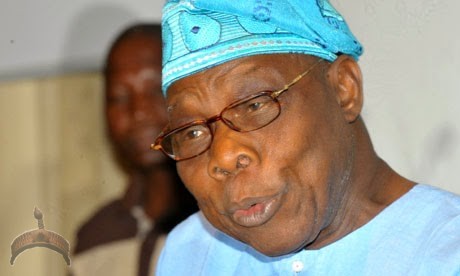Nigeria's no 1 blog for latest Nigeria Property, Nigeria House,Private Property Nigeria, Real Estate Nigeria, Lagos Island nigeria, lekki lagos real estate, arable farming land nigeria, Land for sale, to let,for sale and for rent.
Saturday, April 25, 2015
Friday, April 24, 2015
What Does Putin Want? A Major Analysis by a Prominent Russian Commentator -- a Foreword by The Saker
Ishchenko explains Russia and the U.S. are locked in a mortal struggle, and why neither side can afford to back down.
Foreword by the Saker:
The analysis below is, by far, the best I have seen since the beginning of the conflict in the Ukraine. I have regularly posted analyses by Ishchenko on this blog before, because I considered him as one of the best analysts in Russia.
This time, however, Ishchenko has truly produced a masterpiece: a comprehensive analysis of the geostrategic position of Russia and a clear and, I believe, absolutely accurate analysis of the entire “Putin strategy” for the Ukraine.
I have always said that this conflict is not about the Ukraine but about the future of the planet and that there is no “Novorussian” or even “Ukrainian” solution, but that the only possible outcome is a strategic victory of either Russia or the USA which will affect the entire planet.
Ishchenko does a superb overview of the risks and options for both sides and offers the first comprehensive “key” to the apparently incomprehensible behavior of Russia in this conflict.
Finally, Ishchenko also fully understands the complex and subtle dynamics inside Russian society. When he writes “Russian power is authoritative, rather than authoritarian” he is spot on, and explains more in seven words than what you would get by reading the billions of useless words written by so-called “experts” trying to describe the Russian reality.
We all owe a huge debt of gratitude to Denis, Gideon and Robin for translating this seminal text, which was difficult to translate. The only reason why we can read it in such a good English is because the innumerable hours spent by these volunteers to produce the high quality translation this analysis deserves.
I strongly recommend that you all read this text very carefully. Twice. It is well worth it.
What does Putin want?
Translated from the Russian by Denis, Gideon, and Robin
It’s gratifying that “patriots” did not instantly blame Putin for the failure to achieve a full-scale rout of Ukrainian troops in Donbass in January and February, or for Moscow’s consultations with Merkel and Hollande.
Even so, they still are still impatient for a victory. The most radical are convinced that Putin will “surrender Novorossiya” just the same. And the moderates are afraid that he will as soon as the next truce is signed (if that happens) out of the need to regroup and replenish Novorossiya’s army (which actually could have been done without disengagement from military operations), to come to terms with the new circumstances on the international front, and to get ready for new diplomatic battles.
In fact, despite all the attention that political and/or military dilettantes (the Talleyrands and the Bonapartes of the Internet) are paying to the situation in Donbass and the Ukraine in general, it is only one point on a global front: the outcome of the war is being decided not at the Donetsk airport or in the hills outside Debaltsevo, but at offices on Staraya Square1 and Smolenskaya Square,2 at offices in Paris, Brussels and Berlin. Because military action is only one of the many components of the political quarrel.
It is the harshest and the final component, which carries great risk, but the matter doesn’t start with war and it doesn’t end with war. War is only an intermediate step signifying the impossibility of compromise. Its purpose is to create new conditions whereby compromise is possible or to show that there is no longer any need for it, with the disappearance of one side of the conflict. When it is time for compromise, when the fighting is over and the troops go back to their barracks and the generals begin writing their memoirs and preparing for the next war, that is when the real outcome of the confrontation is determined by politicians and diplomats at the negotiating table.
Political decisions are not often understood by the general population or the military. For example, during the Austro-Prussian war of 1866, Prussian chancellor Otto Von Bismarck (later chancellor of the German Empire) disregarded the persistent requests of King Wilhelm I (the future German Emperor) and the demands of the Prussian generals to take Vienna, and he was absolutely correct to do so. In that way he accelerated peace on Prussia’s terms and also ensured that Austro-Hungary forever (well, until its dismemberment in 1918) became a junior partner for Prussia and later the German Empire.
To understand how, when and on what conditions military activity can end, we need to know what the politicians want and how they see the conditions of the postwar compromise. Then it will become clear why military action turned into a low-intensity civil war with occasional truces, not only in the Ukraine but also in Syria.
Obviously, the views of Kiev politicians are of no interest to us because they don’t decide anything. The fact that outsiders govern the Ukraine is no longer concealed. It doesn’t matter whether the cabinet ministers are Estonian or Georgian; they are Americans just the same. It would also be a big mistake to take an interest in how the leaders of the Donetsk People’s Republic (DPR) and the Lugansk People’s Republic (LNR) see the future. The republics exist only with Russian support, and as long as Russia supports them, Russia’s interests have to be protected, even from independent decisions and initiatives. There is too much at stake to allow [Alexander] Zakharchenko or [Igor] Plotnitzky, or anyone else for that matter, to make independent decisions.
Nor are we interested in the European Union’s position. Much depended on the EU until the summer of last year, when the war could have been prevented or stopped at the outset. A tough, principled antiwar stance by the EU was needed. It could have blocked U.S. initiatives to start the war and would have turned the EU into a significant independent geopolitical player. The EU passed on that opportunity and instead behaved like a faithful vassal of the United States.
As a result, Europe stands on the brink of frightful internal upheaval. In the coming years, it has every chance of suffering the same fate as the Ukraine, only with a great roar, great bloodshed and less chance that in the near future things will settle down – in other words, that someone will show up and put things in order.
In fact, today the EU can choose whether to remain a tool of the United States or to move closer to Russia. Depending on its choice, Europe can get off with a slight scare, such as a breakup of parts of its periphery and possible fragmentation of some countries, or it could collapse completely. Judging by the European elites’ reluctance to break openly with the United States, collapse is almost inevitable.
What should interest us is the opinions of the two main players that determine the configuration of the geopolitical front and in fact are fighting for victory in the new generation of war – the network-centric Third World War. These players are the United States and Russia.
The U.S. position is clear and transparent. In the second half of the 1990s, Washington missed its only opportunity to reform the Cold War economy without any obstacles and thereby avoid the looming crisis in a system whose development is limited by the finite nature of planet Earth and its resources, including human ones, which conflicts with the need to endlessly print dollars.
After that, the United States could prolong the death throes of the system only by plundering the rest of the world. At first, it went after Third World countries. Then it went for potential competitors. Then for allies and even close friends. Such plundering could continue only as long as the United States remained the world’s undisputed hegemon.
Thus when Russia asserted its right to make independent political decisions – decisions of not global but regional import – , a clash with the United States became inevitable. This clash cannot end in a compromise peace.
For the United States, a compromise with Russia would mean a voluntary renunciation of its hegemony, leading to a quick, systemic catastrophe – not only a political and economic crisis but also a paralysis of state institutions and the inability of the government to function. In other words, its inevitable disintegration.
But if the United States wins, then it is Russia that will experience systemic catastrophe. After a certain type of “rebellion,” Russia’s ruling classes would be punished with asset liquidation and confiscation as well as imprisonment. The state would be fragmented, substantial territories would be annexed, and the country’s military might would be destroyed.
So the war will last until one side wins. Any interim agreement should be viewed only as a temporary truce – a needed respite to regroup, to mobilize new resources and to find (i.e., to poach) additional allies.
To complete the picture of the situation, we only need Russia’s position. It is essential to understand what the Russian leadership wants to achieve, particularly the president, Vladimir Putin. We are talking about the key role that Putin plays in the organization of the Russian power structure. This system is not authoritarian, as many assert, but rather authoritative – meaning it is based not on legislative consolidation of autocracy but on the authority of the person who created the system and, as the head of it, makes it work effectively.
During Putin’s 15 years in power, despite the difficult internal and external situation, he has tried to maximize the role of the government, the legislative assembly, and even the local authorities. These are entirely logical steps that should have given the system completeness, stability, and continuity. Because no politician can rule forever, political continuity, regardless of who comes to power, is the key to a stable system.
Unfortunately, fully autonomous control, namely the ability to function without the president’s oversight, hasn’t been achieved. Putin remains the key component of the system because the people put their trust in him personally. They have far less trust in the system, as represented by public authorities and individual agencies.
Thus Putin’s opinions and political plans become the decisive factor in areas such as Russia’s foreign policy. If the phrase “without Putin, there is no Russia” is an exaggeration, then the phrase “what Putin wants, Russia also wants” reflects the situation quite accurately in my opinion.
First, let’s note that the man who for 15 years has carefully guided Russia to its revival has done so in conditions of U.S. hegemony in world politics along with significant opportunities for Washington to influence Russia’s internal politics. He had to understand the nature of the fight and his opponent. Otherwise, he wouldn’t have lasted so long.
The level of confrontation that Russia allowed itself to get into with the United States grew very slowly and up to a certain point went unnoticed. For example, Russia did not react at all to the first attempt at a color revolution in the Ukraine in 2000-2002 (the Gongadze case,3 the Cassette Scandal,4 and the Ukraine without Kuchma protest5).
Russia took an opposing position but did not actively intervene in the coups that took place from November 2003 to January 2004 in Georgia and from November 2004 to January 2005 in the Ukraine. In 2008, in Ossetia and Abkhazia, Russia used its troops against Georgia, a U.S. ally. In 2012, in Syria, the Russian fleet demonstrated its readiness to confront the United States and its NATO allies.
In 2013, Russia began taking economic measures against [Victor] Yanukovych’s regime, which contributed to his realization of the harmfulness of signing an association agreement [with the EU].
Moscow could not have saved the Ukraine from the coup because of the baseness, cowardice, and stupidity of the Ukraine’s leaders – not only Yanukovych but all of them without exception. After the armed coup in Kiev in February 2014, Russia entered into open confrontation with Washington. Before that, the conflicts were interspersed with improved relations, but at the beginning of 2014 relations between Russia and the United States deteriorated swiftly and almost immediately reached the point where war would have been declared automatically in the prenuclear era.
Thus at any given time Putin engaged in precisely the level of confrontation with the United States that Russia could handle. If Russia isn’t limiting the level of confrontation now, it means Putin believes that, in the war of sanctions, the war of nerves, the information war, the civil war in the Ukraine, and the economic war, Russia can win.
This is the first important conclusion about what Putin wants and what he expects. He expects to win. And considering that he takes a meticulous approach and strives to anticipate any surprises, you can be sure that when the decision was made not to back down under pressure from the United States, but to respond, the Russian leadership had a double, if not a triple, guarantee of victory.
I would like to point out that the decision to enter into a conflict with Washington was not made in 2014, nor was it made in 2013. The war of August 8, 2008, was a challenge that the United States could not leave unpunished. After that, every further stage of the confrontation only raised the stakes. From 2008 to 2010, the United States’ capability – not just military or economic but its overall capability – has declined, whereas Russia’s has improved significantly. So the main objective was to raise the stakes slowly rather than in explosive fashion. In other words, an open confrontation in which all pretences are dropped and everyone understands that a war is going on had to be delayed as long as possible. But it would have been even better to avoid it altogether.
With every passing year, the United States became weaker while Russia became stronger. This process was natural and impossible to arrest, and we could have projected with a high degree of certainty that by 2020 to 2025, without any confrontation, the period of U.S. hegemony would have ended, and the United States would then be best advised to think about not how to rule the world, but how to stave off its own precipitous internal decline.
Thus Putin’s second desire is clear: to keep the peace or the appearance of peace as long as possible. Peace is advantageous for Russia because in conditions of peace, without enormous expense, it obtains the same political result but in a much better geopolitical situation. That is why Russia continually extends the olive branch. Just as the Kiev junta will collapse in conditions of peace in Donbass, in conditions of world peace, the military-industrial complex and the global financial system created by the United States are doomed to self-destruct. In this way, Russia’s actions are aptly described by Sun Tzu’s maxim “The greatest victory is that which requires no battle.”
It is clear that Washington is not run by idiots, no matter what is said on Russian talk shows or written on blogs. The United States understands precisely the situation it is in. Moreover, they also understand that Russia has no plans to destroy them and is really prepared to cooperate as an equal. Even so, because of the political and socioeconomic situation in the United States, such cooperation is not acceptable to them. An economic collapse and a social explosion are likely to occur before Washington (even with the support of Moscow and Beijing) has time to introduce the necessary reforms, especially when we consider that the EU will have to undergo reform at the same time. Moreover, the political elite who have emerged in the United States in the past 25 years have become accustomed to their status as the owners of the world. They sincerely don’t understand how anyone can challenge them.
For the ruling elite in the United States (not so much the business class but the government bureaucracy), to go from being a country that decides of the fate of inferior peoples to one that negotiates with them on an equal footing is intolerable. It is probably tantamount to offering Gladstone or Disraeli the post of prime minister of the Zulu Kingdom under Cetshwayo kaMpande. And so, unlike Russia, which needs peace to develop, the United States regards war as vital.
In principle, any war is a struggle for resources. Typically, the winner is the one that has more resources and can ultimately mobilize more troops and build more tanks, ships, and planes. Even so, sometimes those who are strategically disadvantaged can turn the situation around with a tactical victory on the battlefield. Examples include the wars of Alexander the Great and Frederick the Great, as well as Hitler’s campaign of 1939-1940.
Nuclear powers cannot confront each other directly. Therefore, their resource base is of paramount importance. That is exactly why Russia and the United States have been in a desperate competition for allies over the past year. Russia has won this competition. The United States can count only the EU, Canada, Australia, and Japan as allies (and not always unconditionally so), but Russia has managed to mobilize support from the BRICS, to gain a firm foothold in Latin America, and to begin displacing the United States in Asia and North Africa.
Of course, it’s not patently obvious, but if we consider the results of votes at the UN, assuming that a lack of official support for the United States means dissent and thus support for Russia, it turns out that the countries aligned with Russia together control about 60% of the world’s GDP, have more than two-thirds of its population, and cover more than three-quarters of its surface. Thus Russia has been able to mobilize more resources.
In this regard, the United States had two tactical options. The first seemed to have great potential and was employed by it from the early days of the Ukrainian crisis.
It was an attempt to force Russia to choose between a bad situation and an even worse one. Russia would be compelled to accept a Nazi state on its borders and therefore a dramatic loss of international authority and of the trust and support of its allies, and after a short time would become vulnerable to internal and external pro-U.S. forces, with no chance of survival. Or else it could send its army into the Ukraine, sweep out the junta before it got organized, and restore the legitimate government of Yanukovych. That, however, would have brought an accusation of aggression against an independent state and of suppression of the people’s revolution. Such a situation would have resulted in a high degree of disapproval on the part of Ukrainians and the need to constantly expend significant military, political, economic, and diplomatic resources to maintain a puppet regime in Kiev, because no other government would have been possible under such conditions.
Russia avoided that dilemma. There was no direct invasion. It is Donbass that is fighting Kiev. It is the Americans who have to devote scarce resources to the doomed puppet regime in Kiev, while Russia can remain on the sidelines making peace proposals.
So now the United States is employing the second option. It’s as old as the hills. That which cannot be held, and will be taken by the enemy, must be damaged as much as possible so that the enemy’s victory is more costly than defeat, as all its resources are used to reconstruct the destroyed territory. The United States has therefore ceased to assist the Ukraine with anything more than political rhetoric while encouraging Kiev to spread civil war throughout the country.
The Ukrainian land must burn, not only in Donetsk and Lugansk but also in Kiev and Lvov. The task is simple: to destroy the social infrastructure as much as possible and to leave the population at the very edge of survival. Then the population of the Ukraine will consist of millions of starving, desperate and heavily armed people who will kill one another for food. The only way to stop this bloodbath would be massive international military intervention in the Ukraine (the militia on its own will not be sufficient) and massive injections of funds to feed the population and to reconstruct the economy until the Ukraine can begin to feed itself.
It is clear that all these costs would fall on Russia. Putin correctly believes that not only the budget, but also public resources in general, including the military, would in this case be overstretched and possibly insufficient. Therefore, the objective is not to allow the Ukraine to explode before the militia can bring the situation under control. It is crucial to minimize casualties and destruction and to salvage as much of the economy as possible and the infrastructure of the large cities so that the population somehow survives and then the Ukrainians themselves will take care of the Nazi thugs.
At this point an ally appears for Putin in the form of the EU. Because the United States always tried to use European resources in its struggle with Russia, the EU, which was already weakened, reaches the point of exhaustion has to deal with its own long-festering problems.
If Europe now has on its eastern border a completely destroyed Ukraine, from which millions of armed people will flee not only to Russia but also to the EU, taking with them delightful pastimes such as drug trafficking, gunrunning, and terrorism, the EU will not survive. The people’s republics of Novorossiya will serve as a buffer for Russia, however.
Europe cannot confront the United States, but it is deathly afraid of a destroyed Ukraine. Therefore, for the first time in the conflict, Hollande and Merkel are not just trying to sabotage the U.S. demands (by imposing sanctions but not going too far), but they are also undertaking limited independent action with the aim of achieving a compromise – maybe not peace but at least a truce in the Ukraine.
If the Ukraine catches fire, it will burn quickly, and if the EU has become an unreliable partner that is ready if not to move into Russia’s camp then at least to take a neutral position, Washington, faithful to its strategy, would be obliged to set fire to Europe.
It is clear that a series of civil and interstate wars on a continent packed with all sorts of weapons, where more than half a billion people live, is far worse than a civil war in the Ukraine. The Atlantic separates the United States from Europe. Even Britain could hope to sit it out across the Channel. But Russia and the EU share a very long [sic] border.
It is not at all in Russia’s interests to have a conflagration stretching from the Atlantic to the Carpathian Mountains when the territory from the Carpathians to the Dnieper is still smoldering. Therefore, Putin’s other objective is, to the extent possible, to prevent the most negative effects of a conflagration in the Ukraine and a conflagration in Europe. Because it is impossible to completely prevent such an outcome (if the United States wants to ignite the fire, it will), it is necessary to be able to extinguish it quickly to save what is most valuable.
Thus, to protect Russia’s legitimate interests, Putin considers peace to be of vital importance, because it is peace that will make it possible to achieve this goal with maximum effect at minimum cost. But because peace is no longer possible, and the truces are becoming more theoretical and fragile, Putin needs the war to end as quickly as possible.
But I do want to stress that if a compromise could have been reached a year ago on the most favorable terms for the West (Russia would have still obtained its goals, but later – a minor concession), it is no longer possible, and the conditions are progressively worsening. Ostensibly, the situation remains the same; peace on almost any conditions is still beneficial for Russia. Only one thing has changed, but it is of the utmost importance: public opinion. Russian society longs for victory and retribution. As I pointed out above, Russian power is authoritative, rather than authoritarian; therefore, public opinion matters in Russia, in contrast to the “traditional democracies.”
Putin can maintain his role as the linchpin of the system only as long as he has the support of the majority of the population. If he loses this support, because no figures of his stature have emerged from Russia’s political elite, the system will lose its stability. But power can maintain its authority only as long as it successfully embodies the wishes of the masses. Thus the defeat of Nazism in the Ukraine, even if it is diplomatic, must be clear and indisputable – only under such conditions is a Russian compromise possible.
Thus, regardless of Putin’s wishes and Russia’s interests, given the overall balance of power, as well as the protagonists’ priorities and capabilities, a war that should have ended last year within the borders of the Ukraine will almost certainly spill over into Europe. One can only guess who will be more effective – the Americans with their gas can or the Russians with their fire extinguisher? But one thing is absolutely clear: the peace initiatives of the Russian leaders will be limited not by their wishes but their actual capabilities. It is futile to fight either the wishes of the people or the course of history; but when they coincide, the only thing a wise politician can do is to understand the wishes of the people and the direction of the historical process and try to support it at all costs.
The circumstances described above make it extremely unlikely that the proponents of an independent state of Novorossiya will see their wishes fulfilled. Given the scale of the coming conflagration, determining the fate of the Ukraine as a whole is not excessively complicated but, at the same time, it will not come cheap.
It is only logical that the Russian people should ask: if Russians, whom we rescued from the Nazis, live in Novorossiya, why do they have to live in a separate state? If they want to live in a separate state, why should Russia rebuild their cities and factories? To these questions there is only one reasonable answer: Novorossiya should become part of Russia (especially since it has enough fighters, although the governing class is problematic). Well, if part of the Ukraine can join Russia, why not all of it? Especially as in all likelihood by the time this question is on the agenda, the European Union will no longer be an alternative to the Eurasian Union [for the Ukraine].
Consequently, the decision to rejoin Russia will be made by a united federated Ukraine and not by some entity without a clear status. I think that it is premature to redraw the political map. Most likely the conflict in the Ukraine will be concluded by the end of the year. But if the United States manages to extend the conflict to the EU (and it will try), the final resolution of territorial issues will take at least a couple of years and maybe more.
In any situation we benefit from peace. In conditions of peace, as Russia’s resource base grows, as new allies (former partners of the United States) go over to its side, and as Washington becomes progressively marginalized, territorial restructuring will become far simpler and temporarily less significant, especially for those being restructured.
Notes:
3 Georgiy Gongadze was a Georgian-born Ukrainian journalist and film director who was kidnapped and murdered in 2000.
4 The Cassette Scandal erupted in 2000 with the release of audiotapes on which Leonid Kuchma allegedly discussed the need to silence Gongadze for reporting on high-level corruption.
5 As a result of the Cassette Scandal, a mass anti-Kuchma protest took place in the Ukraine in 2000-2001.
African leaders happy over Jonathan’s defeat –OBJ
Previous President Olusegun Obasanjo said African leaders were happy over the defeat of President Goodluck Jonathan in the 2015 presidential race.
He told a crowd of people at the United States Institute of Peace in Washington DC that his checks in various African nations recommended they were glad over the aftereffect of the race. He said some Nigerians portrayed President Jonathan as a moving train who was stopped from breaking down Nigeria.
Spouse Laments on How His Newly Wedded Wife Died During Childbirth
A lamenting Nigerian man took to twitter toward the beginning of today to share how he lost his wife and their unborn kid amid labor (the man is presented above with his late wife).
The tweets are so pitiful and could botch up your morning.
Sun re o
Ase !








Photos: Proud Mom, Mercy Aigbe Shows Off Her sweet Teenage Daughter

All things considered, Not much to life truly! She has a flawless little girl once upon a time, she has remembered her steps and now wedded and shes as glad as ever! way to go young lady! peep photographs of mercy and her little girl bellow.

























